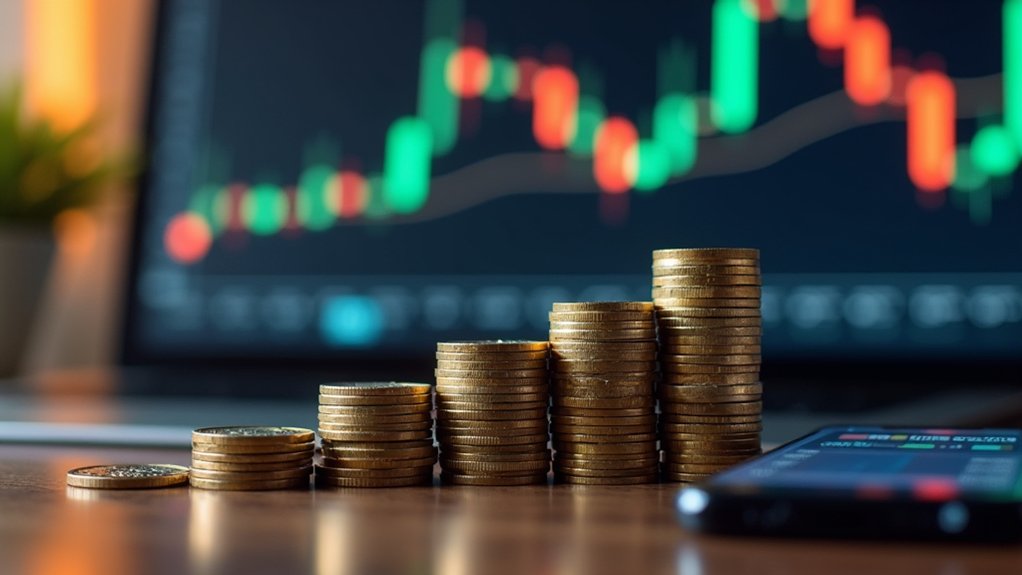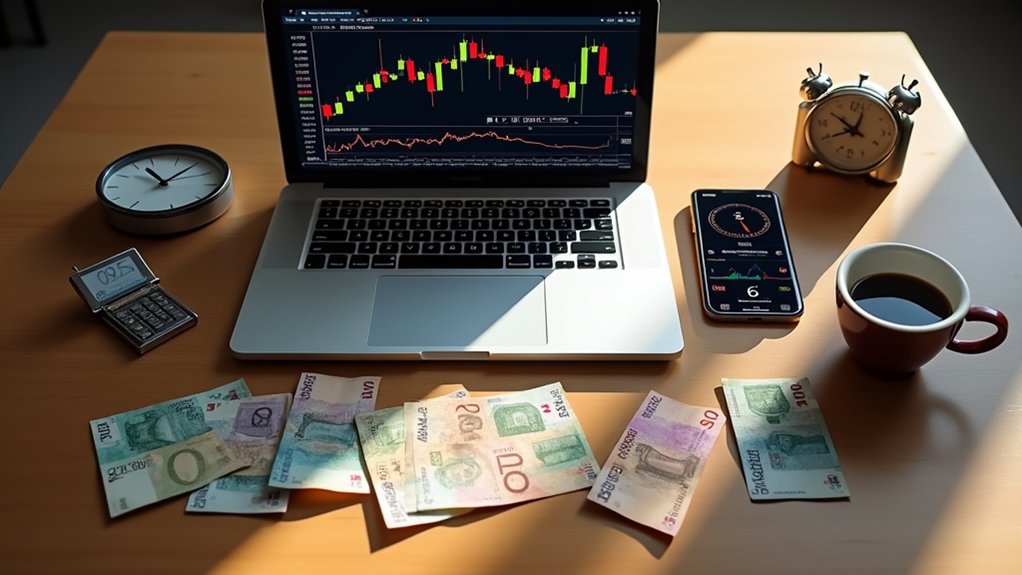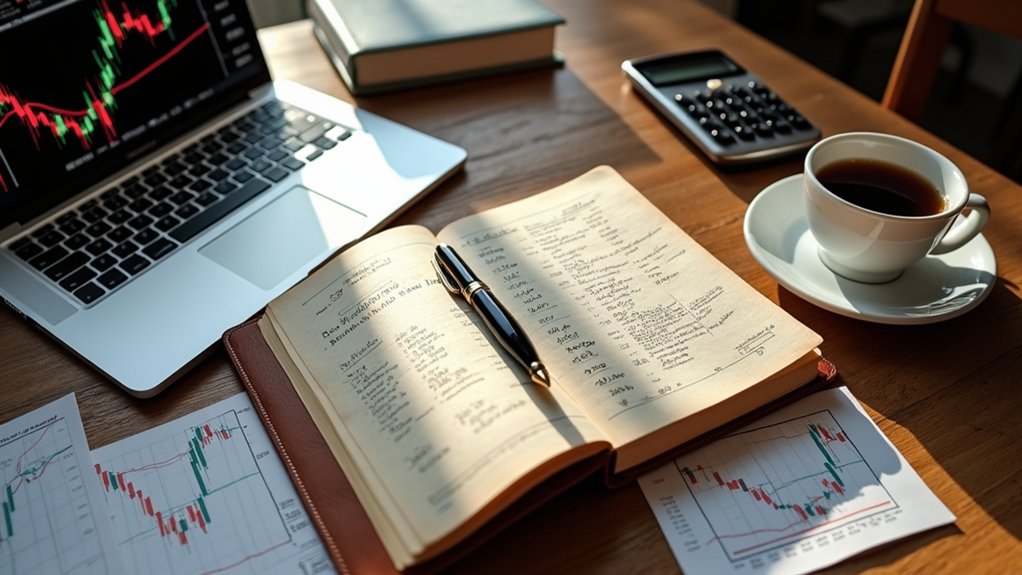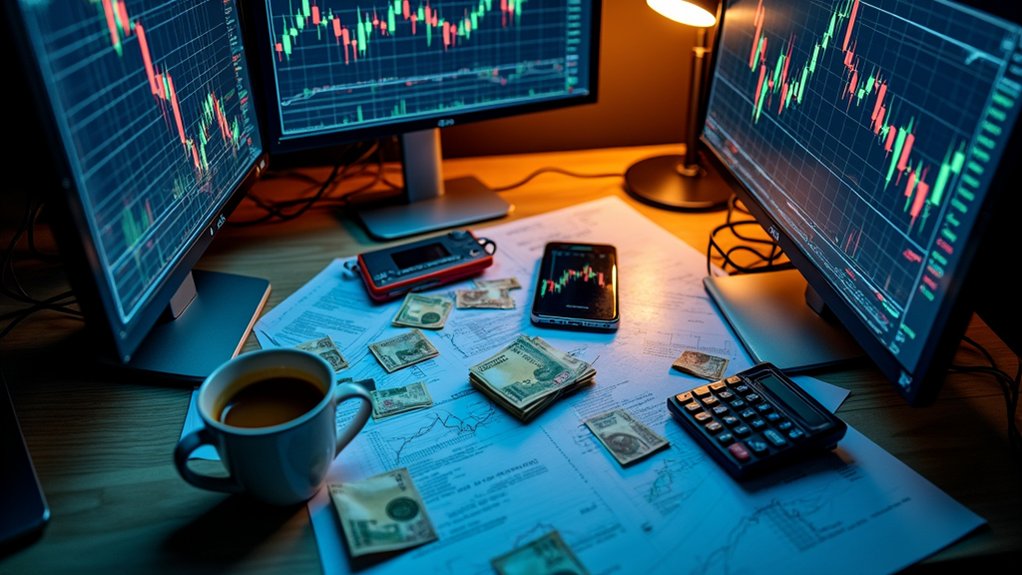Borrowing money to trade forex is a terrible idea because two out of three retail traders already lose money without the added pressure of debt. Leverage ratios up to 1:100 magnify losses just as fast as gains, and a single margin call can wipe out an account while the loan remains due. Volatile markets don't care about repayment schedules. Offshore brokers operating outside strong regulations add fraud risk to an already dangerous mix. Debt creates panic, panic creates bad decisions, and bad decisions guarantee losses.
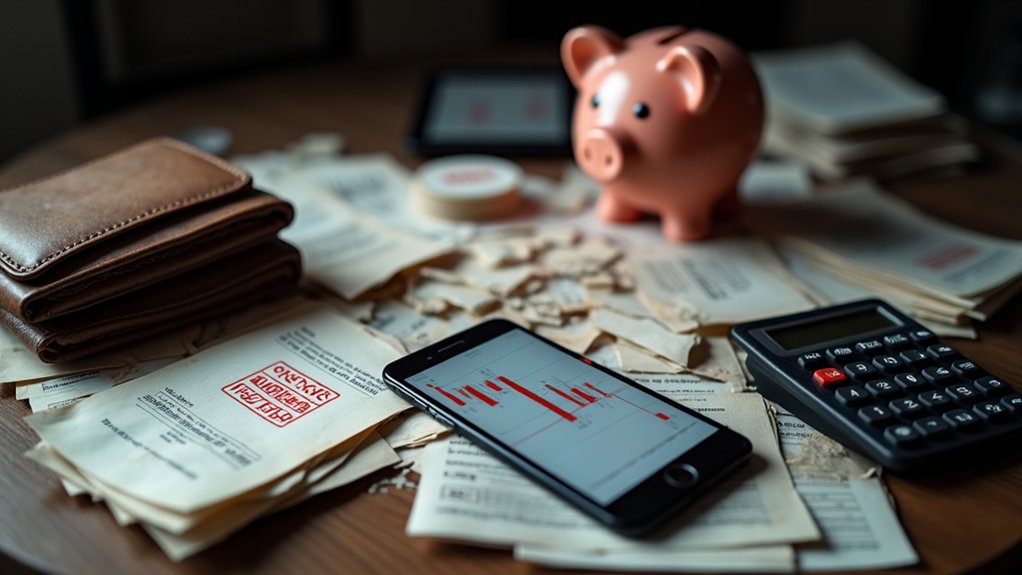
The dream sounds simple enough: borrow a little cash, jump into the forex market, ride a few currency swings, and pocket easy profits. Traders across Nigeria, Kenya, South Africa, and Ghana hear this pitch constantly. The reality? It's a fast track to financial ruin dressed up in motivational quotes and screenshots of fake profits.
Start with the numbers. Two out of three forex customers lose money. That's before anyone even thinks about borrowing. Add borrowed capital to the equation, and the pressure multiplies instantly. Suddenly, it's not just about making smart trades. It's about covering loan payments, interest charges, and watching debt pile up while currency pairs do whatever they want.
Two out of three forex traders lose money—before borrowing even enters the picture and multiplies the pressure exponentially.
Leverage is the other killer. Brokers operating in markets from Egypt to Mauritius offer ratios that sound attractive—1:100, sometimes higher. What that really means is massive exposure on a tiny account. A small move against a trader's position can trigger a margin call. The broker liquidates everything. The loan remains. The trader owes money they don't have, with nothing left in the account to show for it. While controlling larger positions with minimal capital sounds appealing, it magnifies losses just as quickly as potential gains.
Volatility doesn't care about optimism. Exchange rates react to global economic news, political shifts, and sentiment changes that no one sees coming. A stop loss order might limit damage in theory. In practice, gaps and slippage mean protection is partial at best. Rapid movements wipe out accounts faster than traders can react, especially when borrowed money amplifies every tick. Market volatility can turn a promising position into a complete loss within minutes, leaving borrowed funds unrecoverable.
Then there's the broker situation. Many traders in countries like Tanzania, Uganda, and Zimbabwe deal with offshore platforms that operate outside strong regulatory frameworks. Some manipulate prices. Others impose withdrawal restrictions or vanish entirely. When a broker goes under or turns out to be a scam, both deposited funds and borrowed capital disappear. There's no recourse, no insurance, no bailout.
Psychological stress accelerates the damage. Trading with debt creates anxiety that clouds judgment. Traders overtrade, chase losses, take reckless positions trying to recover what's already gone. The emotional toll is worse when every losing trade isn't just a setback—it's money owed to someone else. Panic selling and poor risk management become inevitable. Even currency loans secured against account balances don't eliminate this pressure since loan repayment remains mandatory regardless of trading outcomes. New traders frequently make emotional trading decisions that compound their losses, particularly when dealing with borrowed capital. Many enter the market with unrealistic expectations about how quickly they can repay borrowed funds, leading to increasingly desperate trading behavior.
Forex scams thrive in this environment. High leverage and borrowed funds make desperate traders easy targets. Promises of guaranteed returns, signals that never work, courses that teach nothing—these traps catch people who are already in over their heads.
Borrowed money and forex trading form a combination that consistently destroys financial stability. The statistics, the leverage mechanics, the broker risks, and the emotional pressure all point the same direction. Down.
Common Questions
Can Microfinance Loans in Nigeria Be Used Legally for Forex Trading?
No. Microfinance loans in Nigeria cannot legally be used for forex trading.
The Central Bank of Nigeria explicitly prohibits microfinance banks from engaging in foreign exchange transactions or financing speculative activities.
These loans are restricted to productive, non-speculative purposes like small business capital and poverty alleviation. Forex trading is classified as speculative.
Any microfinance bank caught funding forex trading faces serious sanctions, including potential license revocation.
Borrowers misusing funds could face contractual penalties under their loan agreements.
Do South African Banks Blacklist Traders Who Default on Trading Loans?
South African banks don't keep a special “trader blacklist.” Default on any loan—trading or otherwise—lands you on credit bureau registers like TransUnion. That tanks your credit score, blocks future loans, credit cards, mortgages.
Banks may close accounts after repeated defaults or compliance red flags, but traders aren't singled out as a category. The FSCA blacklists unlicensed brokers and signal providers, not retail borrowers. Default is default. You get treated like any other deadbeat debtor.
How Do Kenyan Mobile Money Debt Collectors Handle Forex Trading Losses?
Kenyan debt collectors tap into M-Pesa, Airtel Money, and T-Kash transaction records to track down traders who blew borrowed cash on forex. They freeze accounts, send automated SMS threats, and report defaulters to credit bureaus.
Field agents show up for big debts. The digital trail makes hiding impossible. Collectors even reclaim funds from winning trades if there's money sitting in linked accounts. It's efficient, relentless, and completely legal—mobile money leaves nowhere to run when the losses pile up.
Are Family Loans for Trading Considered Haram in North African Countries?
Yes, family loans for forex trading are widely considered haram across North Africa. Sharia scholars in Morocco, Algeria, and Egypt classify these loans as riba (forbidden interest) if any repayment exceeds the principal—even informally expected.
The speculative nature of forex itself compounds the problem, introducing maisir (gambling) and gharar (excessive uncertainty). Government-endorsed Sharia boards in these countries reinforce orthodox interpretations: borrowing family money for speculative trading violates Islamic finance principles, full stop.
What Happens if I Borrow and Lose Money Trading Egyptian Pounds?
Borrowing to trade USD/EGP can wreck someone fast. The pound hit 51.72 in April 2025 and keeps wobbling. Losses multiply with leverage, then currency swings inflate what's owed in local terms. Egyptian lenders charge 27–28% interest—compounding the damage.
Default triggers lawsuits, asset grabs, credit blacklisting. Margin calls force liquidation when the pound tanks. Stress piles up, relationships fracture, especially if family assets were pledged. Black market gaps and policy shocks make it worse.



